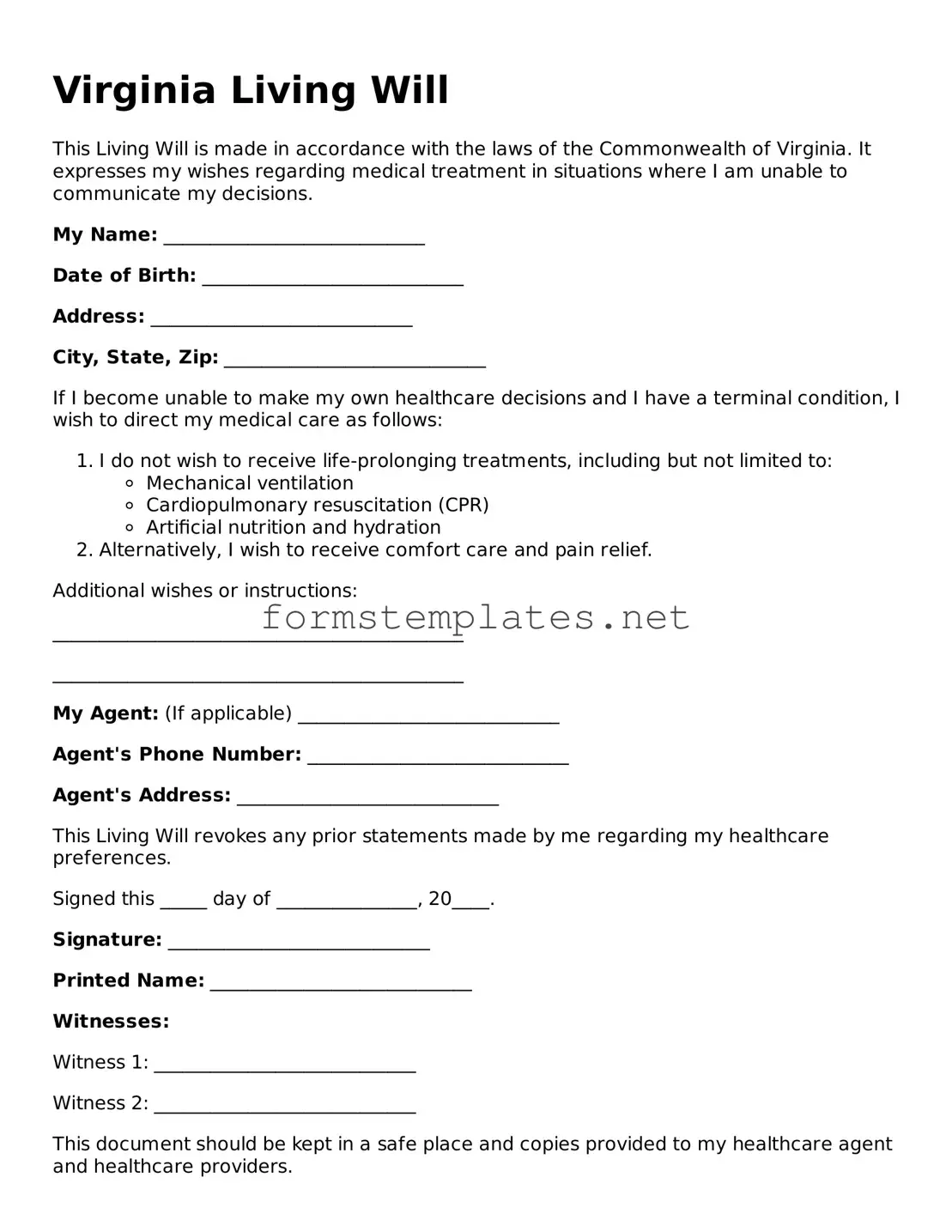Attorney-Approved Virginia Living Will Template
A Virginia Living Will form is a legal document that allows individuals to outline their preferences for medical treatment in situations where they may no longer be able to communicate their wishes. By completing this form, you can ensure that your healthcare decisions align with your values and desires. It serves as a vital tool for guiding loved ones and medical professionals during challenging times.
Open Editor Now

Attorney-Approved Virginia Living Will Template
Open Editor Now

Open Editor Now
or
⇓ PDF Form
Your form still needs attention
Finalize Living Will online — simple edits, saving, and download.